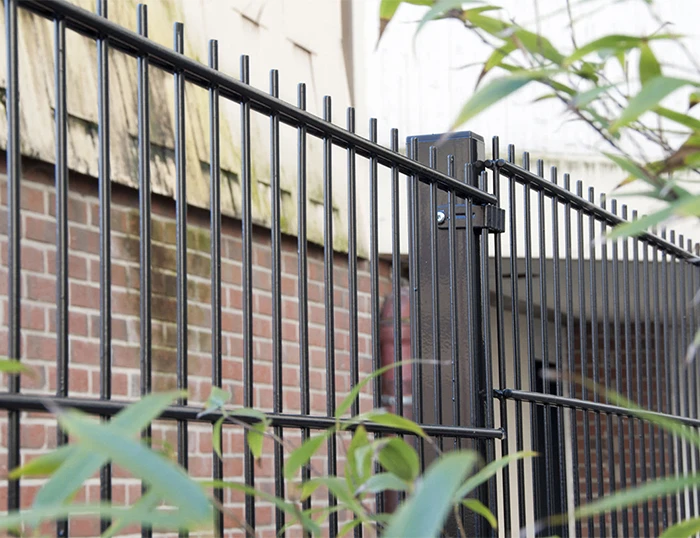Dec . 21, 2024 14:21 Back to list
Reinforcement Solutions for Concrete Structures with Rebar and Wire Mesh
Understanding Rebar and Mesh in Construction
Reinforced concrete is a critical element in construction, providing the strength and durability needed for various structures such as bridges, buildings, and roads. At the heart of reinforced concrete are two essential components rebar and mesh. These materials not only enhance the strength of concrete but also improve its durability against various stresses.
What is Rebar?
Rebar, short for reinforcing bar, is a steel rod or mesh of steel wires used in concrete construction to strengthen the material against tensile stress. When concrete is poured, it is inherently strong under compression but weak under tension. This weakness can lead to cracking and structural failure. Rebar is strategically placed within concrete to alleviate this weakness, allowing structures to withstand various loads and forces.
Reinforcing bars come in various diameters and lengths, categorized by grades that indicate their yield strength. Commonly used grades include Grade 40 and Grade 60, with the numbers representing the yield strength in thousands of pounds per square inch (psi). The surface of rebar is often ribbed or deformed to create a better bond with the concrete, ensuring that both materials work together effectively.
The Role of Steel Mesh
Steel mesh, often known as welded wire reinforcement (WWR), is another critical component in reinforced concrete construction. Unlike rebar, which is typically used in longitudinal or specific configurations, mesh provides a uniform distribution of strength across a larger area. Steel mesh comprises a grid of steel wires that are welded together at regular intervals, forming a robust framework that can withstand tensile and compressive stresses.
Mesh is particularly useful in slabs, pavements, and walls, where it can provide additional support and minimize cracking. It is available in various sizes and wire gauges, allowing construction professionals to select the appropriate type for specific applications. The uniform strength distribution offered by mesh translates into enhanced crack resistance and improved load-bearing capabilities.
rebar & mesh

Applications of Rebar and Mesh
The use of rebar and mesh is ubiquitous in construction projects. In residential buildings, rebar is often used in foundations, beams, and slabs to ensure structural integrity. In commercial buildings, where larger spans and increased loads are common, the use of both rebar and mesh becomes even more critical.
Infrastructure projects such as bridges and highways also rely heavily on these materials. Rebar is used in the construction of bridge decks and load-bearing elements, while mesh can be found in the road surface to prevent cracking as it distributes the loads evenly.
Advantages of Using Rebar and Mesh
The integration of rebar and mesh into concrete structures offers several advantages. Firstly, they significantly enhance the tensile strength of concrete, allowing it to resist various forces and reducing the likelihood of cracks. This increased durability leads to longer-lasting structures, which is crucial in today’s economy where construction costs and resource sustainability are a concern.
Additionally, the use of these materials can lead to faster construction times. With pre-fabricated mesh and standardized rebar cuts available, construction can proceed with greater efficiency. This time-saving aspect is particularly valuable in large-scale projects, where delays can be costly.
Conclusion
In conclusion, rebar and mesh are fundamental components in modern construction, providing the necessary strength and resilience to reinforced concrete. Together, they play a vital role in ensuring that structures can withstand various stresses and environmental factors, contributing to the overall safety and longevity of buildings and infrastructure. As construction technologies continue to evolve, the importance of rebar and mesh remains constant, making them indispensable in the field of civil engineering and construction. Understanding these materials and their applications is essential for anyone involved in the construction industry, guaranteeing that projects not only meet aesthetic demands but also provide robust and durable solutions for the future.
-
Reinforcing Mesh: Core Material of the Construction Industry
NewsJul.07,2025
-
Welded Wire Fabric Reinvented for Modern Projects
NewsJul.04,2025
-
Superiority of Stainless Steel Woven Mesh
NewsJul.04,2025
-
Key Types of Razor Wire and Their Applications
NewsJul.04,2025
-
Durable Metal Fence Types for Security
NewsJul.04,2025
-
Best Materials for Livestock Fence
NewsJul.04,2025
products.







